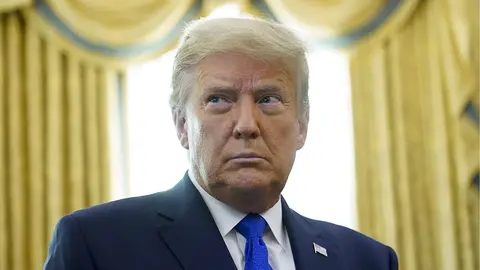Trump proposes that the United States take control of Gaza
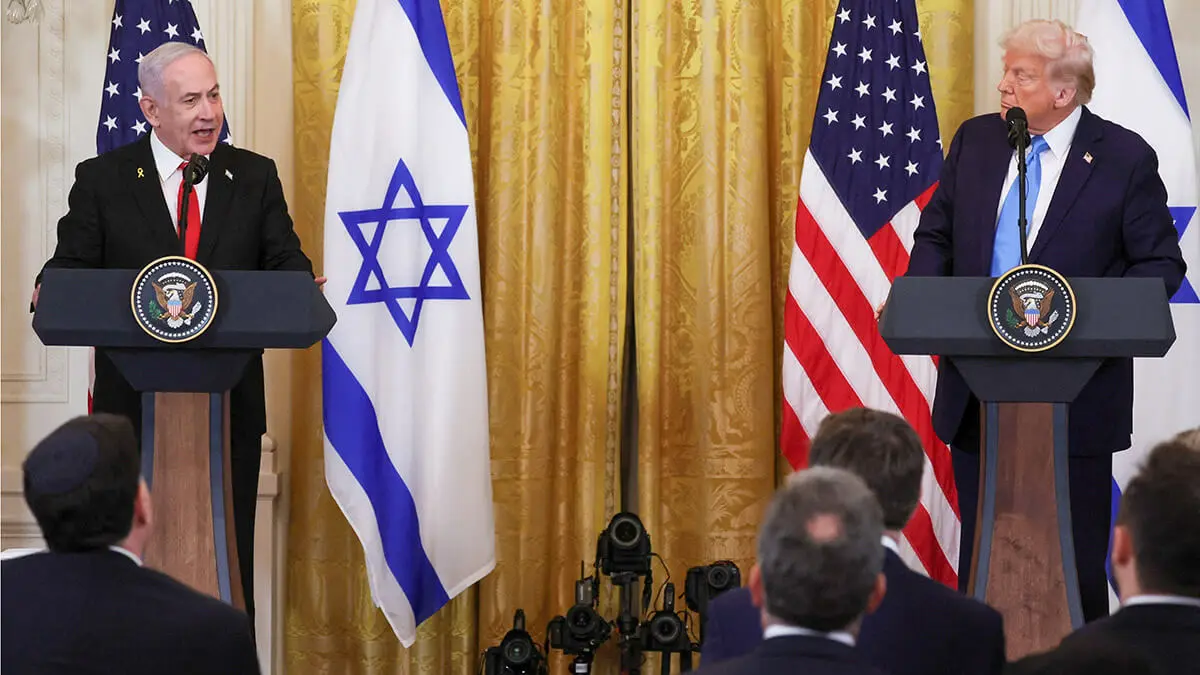
US President Donald Trump's plan for the Gaza Strip is generating a series of reactions globally and, above all, in the Middle East. The region's main leaders have already expressed their rejection of Trump's proposal, which calls for the United States to take control of Gaza and for its citizens to be transferred to neighbouring countries, such as Egypt and Jordan.
‘The United States will take charge of the Gaza Strip,’ the US president said during a press conference after a meeting with Israeli Prime Minister Benjamin Netanyahu, the first foreign leader Trump has met since taking office.
The US leader outlined his plans to ‘redevelop’ Gaza, much of which was destroyed after a war lasting more than 15 months between Israel and Hamas. According to United Nations figures, the conflict that began on 7 October 2023 following the attack by the terrorist group has damaged or destroyed around 60% of buildings, including schools and hospitals, and approximately 92% of homes.
In addition to the reconstruction of the Palestinian enclave, Trump assured that his country would take charge of ‘dismantling all dangerous unexploded bombs’, as well as ‘other weapons’. In this sense, he did not rule out sending US troops, reiterating that ‘as far as Gaza is concerned’, they will do ‘whatever is necessary’.
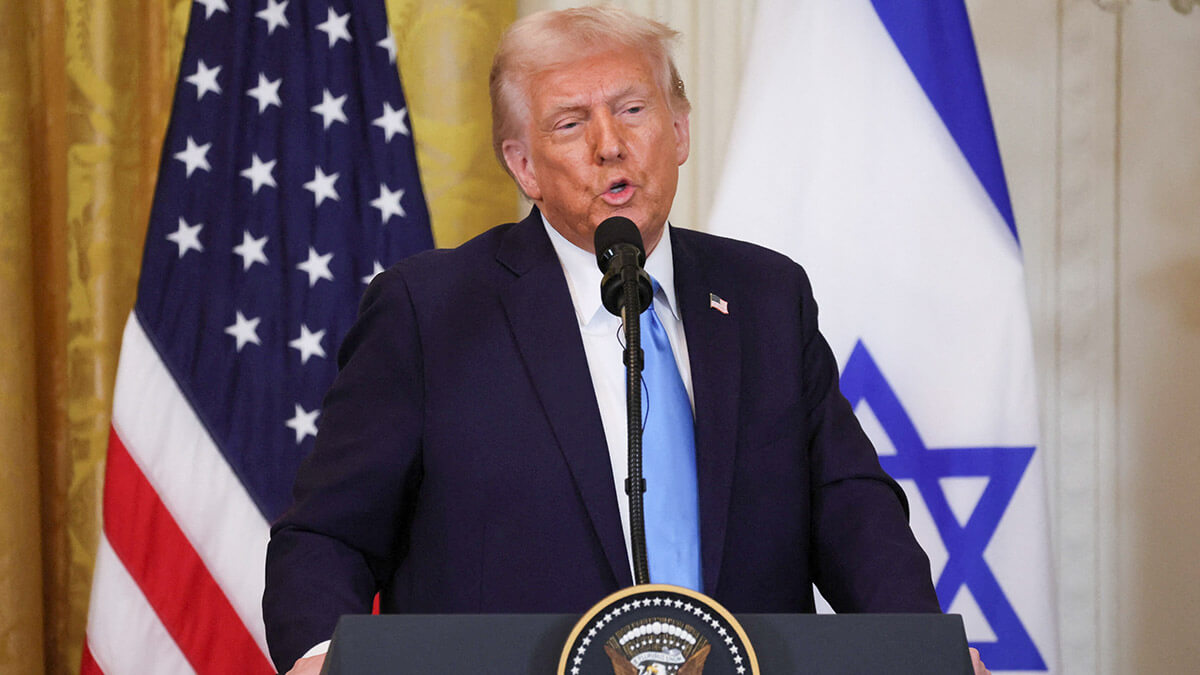
Once the area has been rebuilt, Trump emphasised ‘the opportunity to do something that could be phenomenal’. ‘The potential of the Gaza Strip is incredible’ and it could become the ‘Riviera of the Middle East’, Trump declared.
With regard to the Gazans, the president reiterated his proposal to relocate them to neighbouring countries, which was presented a few weeks ago and rejected by most Arab nations.
"The U.S. will take over the Gaza Strip, and we will do a job with it, too." –President Donald J. Trump pic.twitter.com/aCqLl9Gwwn
— President Donald J. Trump (@POTUS) February 5, 2025
Saudi Arabia, Jordan, Egypt and other Arab nations issued a statement last week reaffirming their desire for a two-state solution and pledging their ‘continued and full support for the steadfastness of the Palestinian people in their land’. Following Trump's recent statements, the Arab world has once again expressed its rejection of the proposal.
Hamas, the group that has controlled Gaza since 2007, has also made its position clear. The terrorist organisation has branded Trump's words as ‘aggressive’, warning that his comments ‘will not contribute to stability in the region and will only add fuel to the fire’.
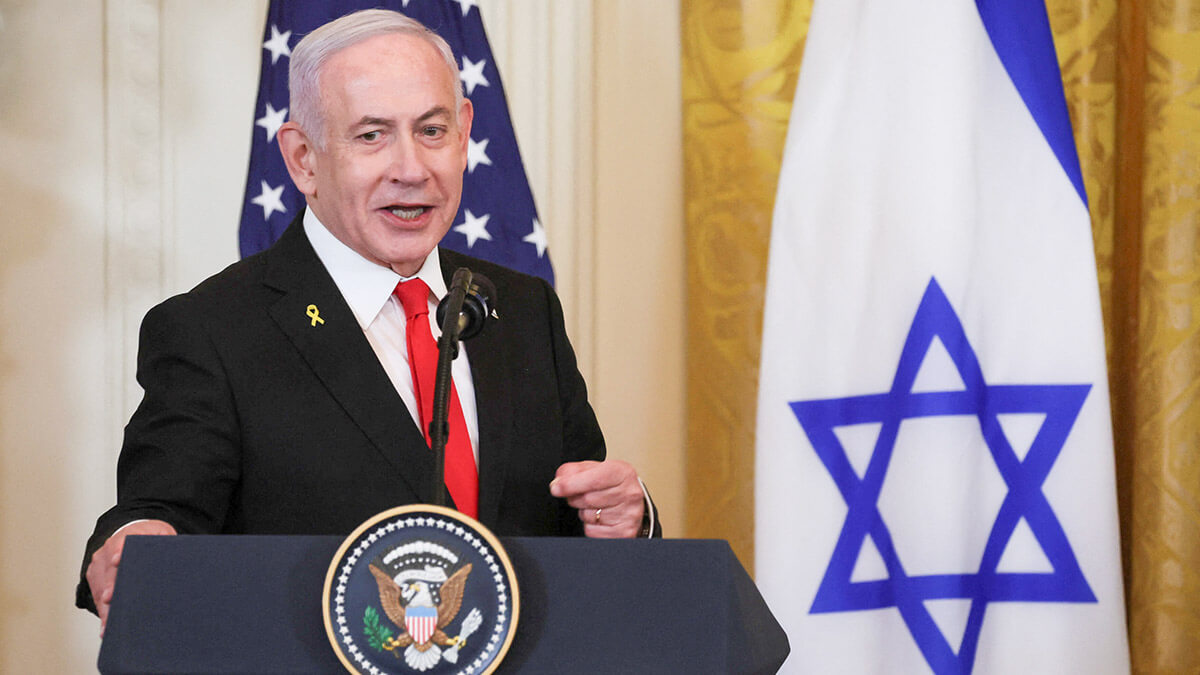
For his part, Netanyahu thanked Trump for Washington's support, emphasising that ‘Israel's victory will be America's victory’. ‘Not only will we win the war by working together, but we will win the peace. With your leadership and our partnership, we will forge a bright future for our region,’ the Israeli Prime Minister added.
Netanyahu also expressed his gratitude to Trump for his support in the release of the hostages in Gaza, for his fight against anti-Semitism and for his decision to withdraw funding from UNRWA, the UN agency for Palestinian refugees, due to its links with Hamas.
President Trump, You are the greatest friend Israel has ever had in the White House.
— Benjamin Netanyahu - בנימין נתניהו (@netanyahu) February 5, 2025
הנשיא טראמפ, אתה החבר הטוב ביותר שהיה אי פעם לישראל בבית הלבן. pic.twitter.com/s8kB7L6cC4
Netanyahu recalled Trump's firm support on issues key to Israel during his first term in office, such as recognising Jerusalem as the capital of the Jewish state and moving the embassy there in 2018, as well as recognising Israeli sovereignty over the Golan Heights and signing the Abraham Accords that strengthened Israel's regional integration.
After the United Arab Emirates, Bahrain and Morocco, the US administration is working to accelerate normalisation between Israel and Saudi Arabia, another key ally of Washington in the region.
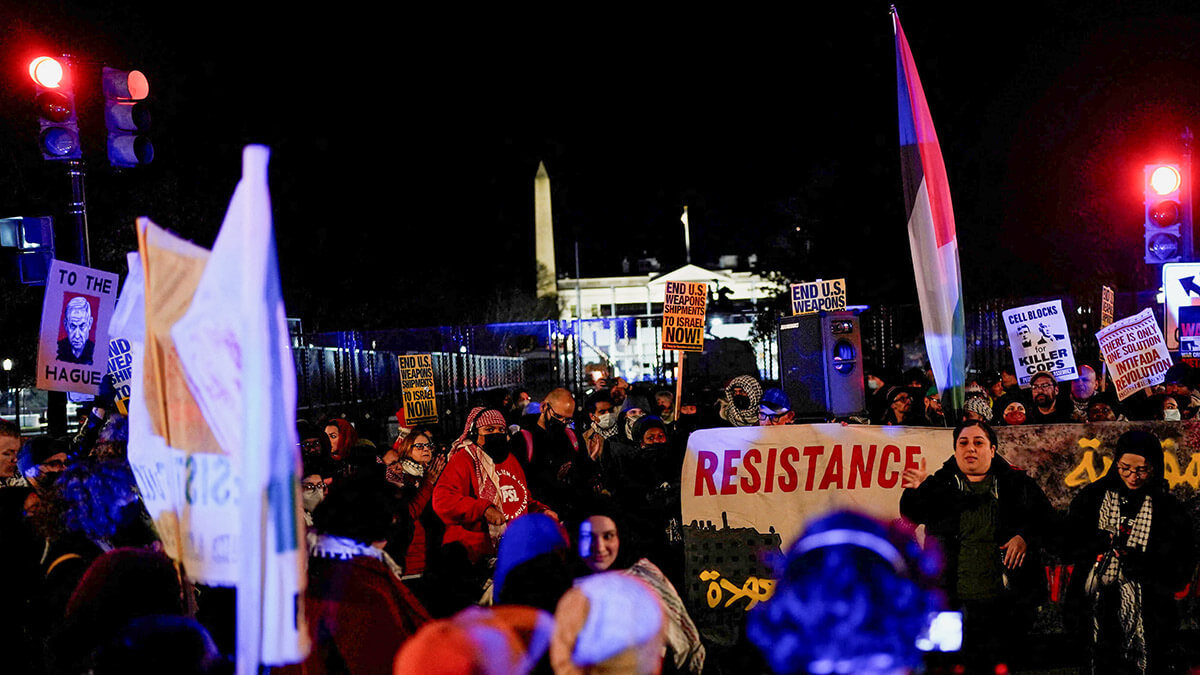
With regard to the Islamic Republic of Iran, Netanyahu said that the two governments are aligned in their strategy to curb Tehran's influence in the region. ‘We are committed to rolling back Iran's aggression in the region and ensuring that Iran never develops a nuclear weapon,’ he stressed.
In this sense, Trump has just re-established the policy of maximum pressure on the Iranian regime from his first term in office, which caused the Iranian rial to reach a new historic low on Wednesday. Regarding nuclear weapons, the US president agreed with Netanyahu, emphasising that the Islamic Republic ‘cannot have a nuclear weapon’.

